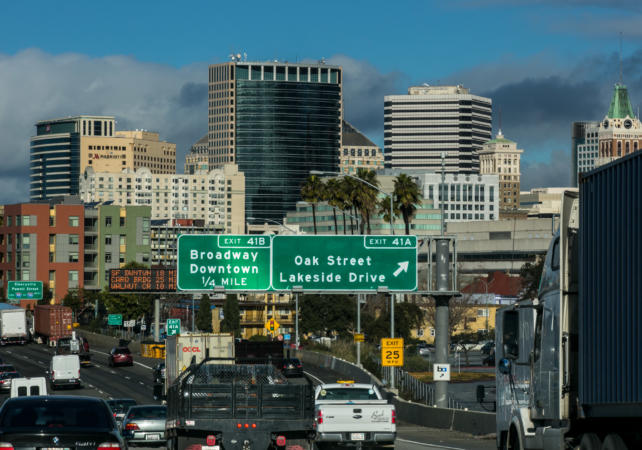The use of facial recognition technology by government agencies — including law enforcement — has continued to raise privacy and civil rights concerns across the nation. Now, some cities are taking pre-emptive steps to prevent it from ever reaching them.
On Thursday, the Oakland Privacy Commission unanimously approved a recommendation to the city council calling for the ban of any type of facial recognition technology.
According to KTVU, Chair Brian Hofer acknowledged that there’s no agency he’s presently aware of utilizing facial recognition technology in Oakland. However, it’s better to act now than get caught scrambling later.
As Hofer told KTVU:
“This is our opportunity to prevent the genie from getting out of the bottle. We know the technology is dangerously inaccurate today, and even if it becomes perfectly accurate, it is too radical of an expansion of government power over our lives. We have a human right, and a state right, to privacy. When the vendors of such technology like Google and Microsoft won’t sell it to law enforcement due to human rights concerns, alarm bells should be ringing.”
What Hofer is referring to are fairly recent decisions. Last month, Microsoft refused to sell facial recognition tech to law enforcement in California — although it has sold facial recognition to at least one prison, The Verge reported.
Google also made the decision to not sell facial recognition technology due to its potential for abuse. It’s slightly ironic considering the company’s past attempts to work with the Department of Defense on drone warfare.
Microsoft has repeatedly called for regulation around the technology. The company’s president, Brad Smith has publicly spoken up about the issue.
“Move fast and break things’ became something of a mantra in Silicon Valley earlier this decade. But if we move too fast with facial recognition, we may find that people’s fundamental rights are being broken,” Smith wrote in an open letter.
For advocates, the violation of fundamental rights is a concern, but so is facial recognition’s potential to exacerbate pre-existing social issues. It’s been long noted that facial recognition tech struggles to read anyone who isn’t a white man.
In particular, Amazon’s Rekognition program mismatched 28 members of Congress to mugshots in a July 2018 test by the American Civil Liberties Union. Six were members of the Congressional Black Caucus. Then, a January 2019 study found the program had greater errors in trying to recognize darker-skinned women.
Despite that, Amazon’s Rekognition program is used by at least two police departments in the United States. Recently, reports found that police in Washington County, Oregon are seriously misusing the program by running artists sketches through it, increasing the chances of a false match.
Other cities in California are also looking to take action against facial recognition technology. San Francisco is looking to outright ban government use of facial recognition technology.
The proposal specifically noted how facial recondition technology could harm Black and brown communities and “exacerbate racial injustice and threaten our ability to live free of continuous government monitoring.”

